Personality and Temperament
Three distinct coat colors in one adorable breed: Russian White, Black, and Tabby cats were all developed with help from the much-loved Russian Blue. Stunning looks, luxurious short-haired coats, and wonderful personalities are a few things that help these kitties stand out from the crowd.
Russian Black, White, and Tabby cats are playful and personable, but not terribly mischievous. Happy to keep their families entertained, these kitties make amusing companions thanks to their high intelligence. Like their blue-haired cousins, these cats quickly learn which behaviors earn pats and praise from their human family members, and which behaviors are best avoided. They share the Russian Blue’s sensitive nature; a loud scolding is likely to hurt this individual’s feelings and send them into hiding.
Friendly and sociable with family members including other pets including well-behaved dogs, Russian Tabby, White, and Black cats have a decidedly shy streak. They aren’t at all fond of strangers and will tuck themselves safely into a safe spot when new people come to visit. This trait means they aren’t good candidates for leash training; instead, it’s best to provide plenty of indoor exercise opportunities that allow for safe enjoyment on the cat’s terms.
Those who spend long hours away from home will be glad to hear that Russian White, Black, and Tabby cats are perfectly fine with the idea of keeping themselves entertained (or asleep) while their human friends are at work or school. They’re likely to greet you with a series of happy meows and a wiggling tail when you return.
Speaking of meows, these kitties are somewhat talkative, but far less so than their Siamese ancestors. They have a reputation for talking back when spoken to, and for reaching out with a questioning paw when they’d like to receive some attention. Some will “sing” to themselves while playing with a favorite toy, and some will become fairly demanding when they sense mealtime approaching.
If you’re lucky enough to make a Russian White, Black, or Tabby cat part of your family, you’ll enjoy a lifetime of companionship, cozy snuggles, and friendly chats.
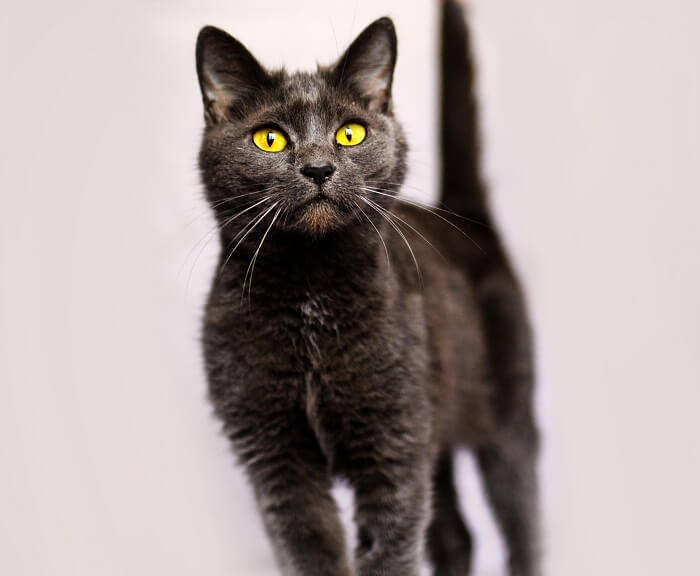
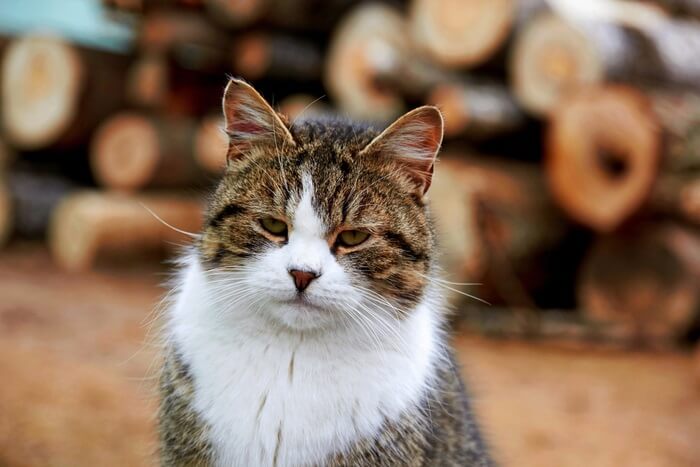
Care
Nutrition
Grooming
Exercise
Health
Russian White, Black, and Tabby cats have no unusual nutritional needs; however, we recommend offering a high-quality diet, whether that’s fresh food or a commercial diet that’s high in protein and low in carbohydrates. Foods that rely on real fish or real meat as the main ingredient are best. Remember to choose a food that’s appropriate for your cat’s life stage.
Russian White, Black, and Tabby cats have short coats that are easy to care for. A weekly brushing will prevent excess shedding and cut back on hairballs, plus it’s a ritual that your cat is likely to enjoy. Other routines to consider include regular nail trims and toothbrushing.
Even though Russian White, Black, and Tabby cats develop laid-back personalities once they reach adulthood, they do enjoy playtime. Offer a cat tower and consider setting up at least one window seat; these kitties love to jump and climb. Provide a good assortment of toys including little balls and catnip mice, interactive wands, and puzzle toys. Your cat (and your furniture) will appreciate a few good scratching posts, too.
These kitties typically enjoy good health. Even though they are hybrids with no known genetic issues, they can suffer from common feline diseases including urinary tract disease, kidney and bladder stones, periodontal disease, and hypertrophic cardiomyopathy. Obesity can occur too, particularly in older cats; with it can come diabetes and many other complications.
History
Russian White, Black, and Tabby cats are the result of an Australian breeding program that began with a white Siberian cat and a Russian Blue cat. The White Siberian cat had no pedigree, however when she was mated to a Russian Blue, she produced two white offspring. The breeders, Dick and Mavis Jones of Myemgay Cattery, kept a white kitten and named it White Rose. When she reached adulthood, she looked like a pure white version of a Russian Blue.
White Rose was mated back to her Russian Blue sire, Myemgay Yuri. She gave birth to two more White Russian kittens, which were eventually paired with Russian Blue stud cats. The best white kittens were continually bred back to Russian Blues until the breed was fully established. The Royal Agricultural Society (RAS) of New South Wales, Australia, granted Championship status in 1975, but only to the Russian White.
Russian Black and Russian Tabby kittens can occur when two Russian Blue cats are mated to one another, and they sometimes occur when one parent is a Russian White.
Not all registries recognize all “Russian” cat colors or place them all in the same category. For example, The Cat Fanciers Association (CFA) and Federation International Feline (FIFe) only recognize Russian Blues. The Governing Council of the Cat Fancy (GCCF) recognizes Russian White and Russian Black cats, and the American Cat Fanciers Association (ACFA) has distinct breed standards that separate Russian Blues from Russian Shorthairs in blue, white, and black colors.
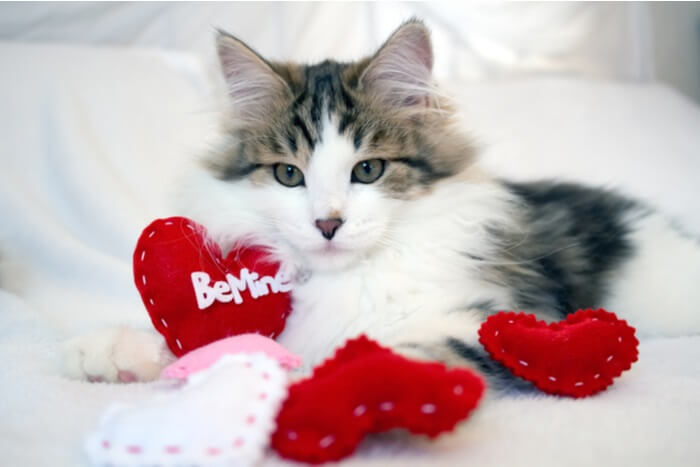
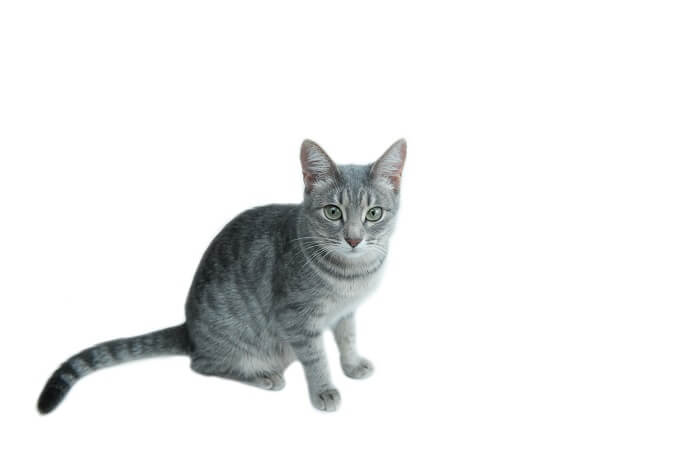
The Breed Standard
Eyes
Legs & Paws
Tail
The Breed Standard
Body
Head
Ears
Coat
Color
FAQ
How much does a Russian White, Black, and Tabby cat cost?
Russian White, Black, and Tabby cats cost between $400 - $2,000.
How big do Russian White, Black, and Tabby cats get?
Russian White, Black, and Tabby cats tend to be small in size. A fully grown Russian White, Black, and Tabby cat might weigh between 8-12 pounds or more and range in height anywhere from about 8"- 10" inches tall.
How long do Russian White, Black, and Tabby cats live?
The Average lifespan for Russian White, Black, and Tabby is 10-15 years.
Do Russian White, Black, and Tabby cats shed?
Russian White, Black, and Tabby are short-haired cats. Therefore, they do not shed as much as long-haired cat breeds.
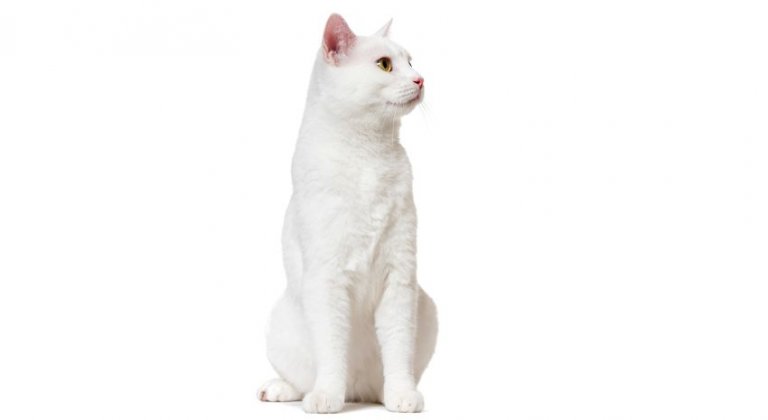
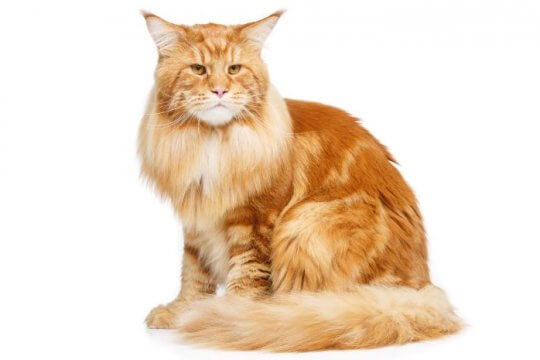
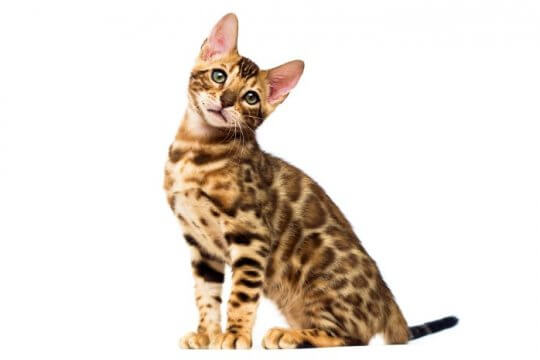
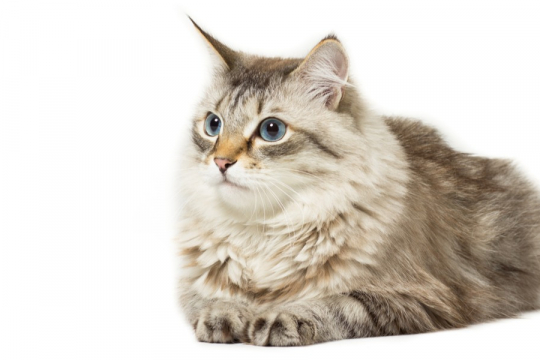
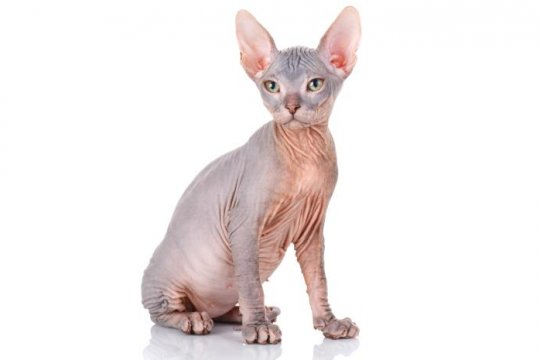
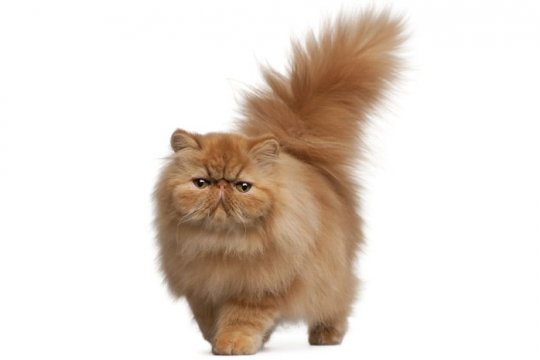
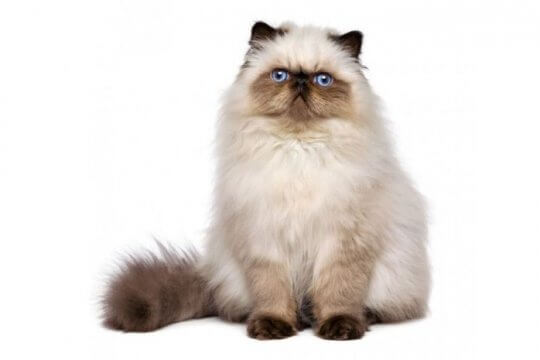
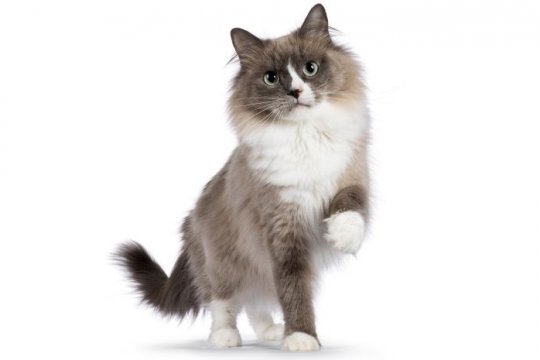
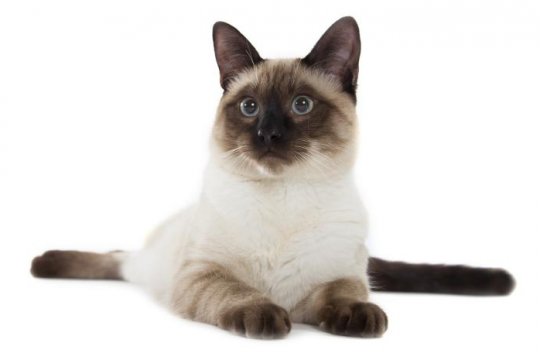
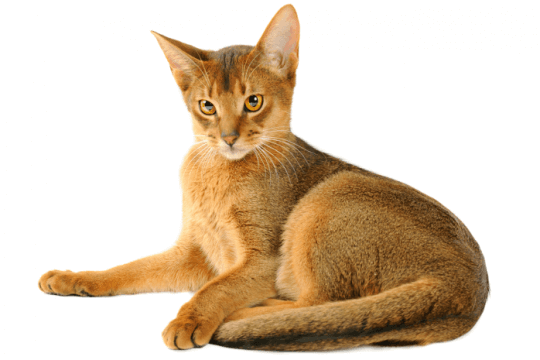
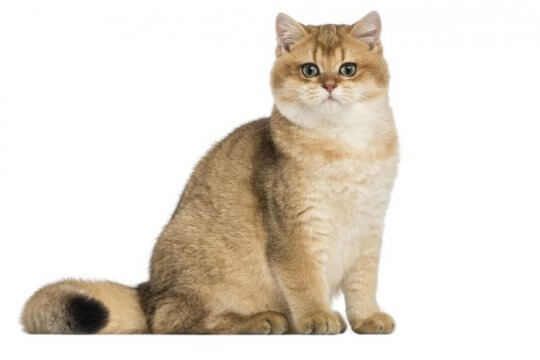
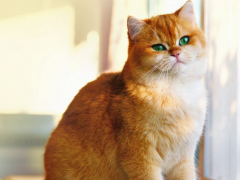
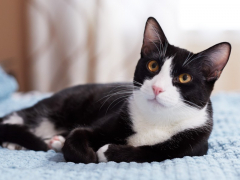
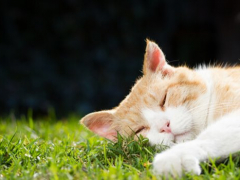
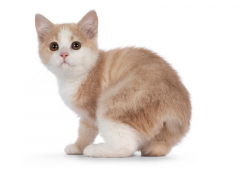
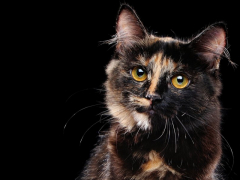
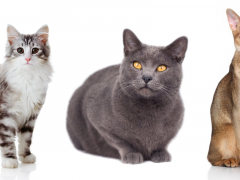


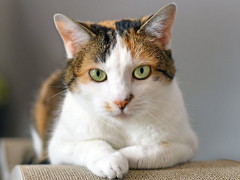
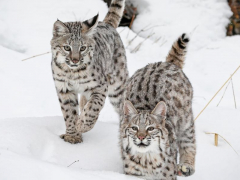
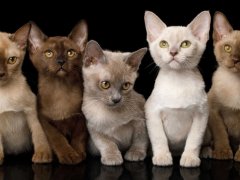

My Russian Tabby is an angel! Playful and sweet and chatty. My favourite part is cuddly he often gets.
I have 2 tabby’s and they’re so goofy and playful it’s great. They really make amazing indoor cats and in my area at least, they’re pretty cheap. I think that they’d be a good first cat breed because of their low maintenance hair coat and because of their personalities.
I’m so glad to find out I have a Russian White, She is so loving. She has all the qualites of what I read. She has pink ears, and around here eyes.
I adopted my cats from a shelter. They told me the grey one was Russian Blue. However upon research, Russian Blues are short hair. I discovered she was a nebelung and as they were siblings and matched the characteristics physically and personality, he was a Russian Black. They are both very affectionate, however the nebelung is extremely shy to strangers while the Russian Black quite adores pets and warms up to them pretty quickly. Probably due to he is more affectionate than she and she is more active than he. I have had them since kittens and they have been exposed to dogs and new people (large family). They are both very intelligent and understand that the kitchen counters and dinner table is off limits and like to sit on the dinner chairs. They also both understand the word no effectively.
They are very beautiful and amazing cats I would recommend to anyone to have.
I had a Russian White cat that lived (indoors) with green eyes back in the 90’s. She lived for 12 years but passed from kidney disease. I never knew exactly what breed it was until today my daughter showed me a picture of her teacher’s cat. The same color & everything only he was a male. She was very, very intelligent, playful & had a unique personality. Yes, she did stare especially at strangers as if she was trying to run them out of the house. My parents had her declawed & regret it because I really think it changed her personality like less playful. Unfortunately, back then they did not have the nail covers that are out today. We bought her from the SPCA & she was the best pet I ever had & still would recommend anyone that has no pets to buy one. They are independent & full of life.